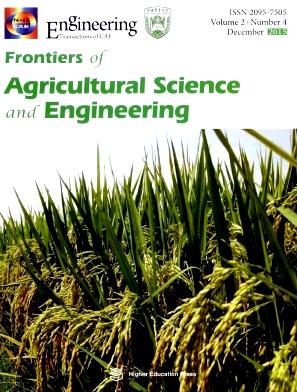运输应激对肠道神经元一氧化氮合酶的影响
IF 2.8
4区 农林科学
Q1 AGRONOMY
引用次数: 0
摘要
运输应激是动物胃肠道功能障碍的常见症状。目前,运输应激诱导肠道损伤的机制在很大程度上是未知的。本研究旨在探讨运输应激对大鼠肠内神经元型一氧化氮合酶(nNOS)表达及nNOS阳性神经元分布的影响,并探讨运输应激的神经内分泌机制。在本研究中,Sprague Dawley大鼠(n = 6)在恒温摇床上放置1 (S1d)或3d (S3d)。S1d组大鼠血糖升高,白细胞总数减少,其中淋巴细胞水平降低(P < 0.05)。S1d大鼠正常肠道形态被破坏,十二指肠、空肠和结肠肌肉层厚度减少。此外,与未应激大鼠相比,S3d大鼠十二指肠、空肠和结肠中nNOS表达及肌肠丛nNOS阳性神经元数量均下调(P < 0.05)。这些数据揭示了运输应激诱导肠道损伤,并揭示了nNOS阳性神经元和nNOS表达可能参与调节这一过程的潜在作用机制。本文章由计算机程序翻译,如有差异,请以英文原文为准。
EFFECTS OF TRANSPORT STRESS ON THE INTESTINES INVOLVING NEURONAL NITRIC OXIDE SYNTHASE
ABSTRACT Transport stress is commonly suffered by animals with gastrointestinal dysfunction a common symptom. Currently, the mechanisms of transport stress-induced intestine impairment are largely unknown. The aim of this study was to investigate the effects of transport stress on the expression of neuronal nitric oxide synthase (nNOS) and the distribution of nNOS-positive neurons of the intestines in rats and to explore the neuroendocrine mechanism of transport stress. In this study, Sprague Dawley rats ( n = 6) were subjected on a constant temperature shaker for 1 (S1d) or 3 d (S3d). Rats exhibited increased serum glucose and diminished total number of leukocytes, in which lymphocytes level was also decreased in the S1d group ( P < 0.05). Also, normal intestinal morphology was disrupted in the S1d rats, and the thickness of muscle layers was decreased in duodenum, jejunum and colon of S3d rats. In addition, it was found that nNOS expression, as well as the number of nNOS-positive neurons in the myenteric plexus were downregulated in duodenum, jejunum and colon of S3d rats compared with that of unstressed rats ( P < 0.05). These data reveals that transport stress induced intestinal damage and uncovers potential action mechanisms that nNOS-positive neurons and nNOS expression might be involved in modulating this process.
求助全文
通过发布文献求助,成功后即可免费获取论文全文。
去求助
来源期刊
CiteScore
5.10
自引率
2.70%
发文量
33
期刊介绍:
Frontiers of Agricultural Science and Engineering (FASE) is an international journal for research on agricultural science and engineering. The journal’s aim is to report advanced and innovative scientific proceedings in agricultural field including Crop Science, Agricultural Biotechnology, Horticulture, Plant Protection, Agricultural Engineering, Forestry Engineering, Agricultural Resources, Animal Husbandry and Veterinary Medicine, Applied Ecology, Forestry and Fisheries. FASE is committed to provide a high level scientific and professional forum for researchers worldwide to publish their original findings and to utilize these novel findings to benefit the society.

 求助内容:
求助内容: 应助结果提醒方式:
应助结果提醒方式:


